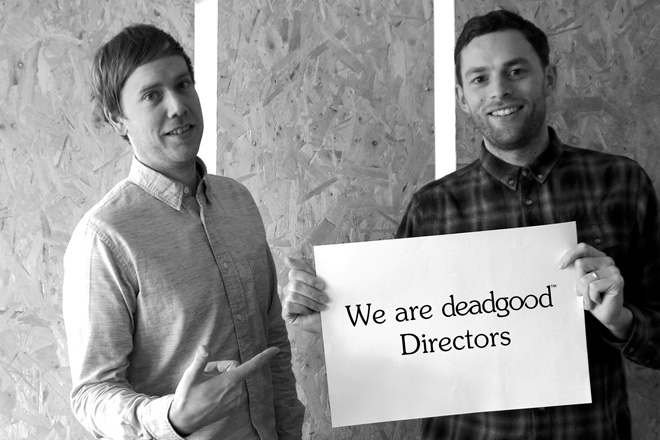Building a brand that makes a mark in the ever-discerning design market is no mean feat – particularly when fresh out of university with no formal business training. However, in 2004 this is exactly what Elliot Brook and Dan Ziglam did, armed with only one product and heaps of entrepreneurial creativity.
Now in its 10th year, Deadgood is one of the most stand-out brands in its field, flying the flag for boutique British design at home and abroad. Elliot speaks with Hospitality Interiors’ Katie Sherry about what makes Deadgood so great.
Manufacturing design-led furniture to a high standard is a challenge in itself, but marketing your products is a whole other ball game. Deadgood’s founders, however, seem to have struck a harmonious balance between the two skillsets, and are currently in the process of showing the rest of the design world how it is done.
As self-styled design entrepreneurs, Elliot and Dan’s ability to merge their creativity and business nous has proved invaluable – especially throughout the throes of the recent recession. 2008 saw the company’s first round of investment, which – so soon after the economic crisis hit – could have been a make-or-break move. Luckily, however, the investment paid off, and allowed Deadgood to prosper even when money was tight.
“Growing a business in a recession is never easy,” Elliot explains, “but it did teach us to find creative ways of making the most of limited resources. Although we both went to art school and got a design degree [from the University of Northumbria, Newcastle], we had no previous business experience. But what we could do was apply a creative approach to business.”
Elliot and Dan spent the first few years of Deadgood on a hands-on crash course in how to manage a design company – from creating products with consumer appeal to negotiating price points. As well as developing their own product range, Elliot and Dan gained invaluable experience through designing furniture for others – including prominent retail brands such as Barker and Stonehouse.
“Growing a business in a recession is never easy . . . but it did teach us to find creative ways of making the most of limited resources”
Today, the Deadgood studio works from its offices in London and Newcastle-upon-Tyne to offer a plethora of cutting-edge, contemporary furniture, lighting and accessories. Many ranges are the result of collaborations with design talents such as David Irwin, Lee Broom, Max Lamb and Daniel Schoï¬eld – to name a few – who have joined the Deadgood family thanks to their dedication to creating quality, design-led products.
“We collaborate with designers who share our kind of philosophies – people who create products with personality,” Elliot enthuses. “Our Deadgood family is made up of designers with whom we can build long-lasting relationships. The way we work with our clients is exactly the same. Our business is all about relationship management – it is not a faceless company.”
Deadgood’s collaborative approach has proved useful when it comes to providing bespoke commissions – a particularly useful offering for hospitality projects. Following what Elliot cites as the company’s “big break” in the contract market – the specification of its Love Chair at Manchester Airport’s Escape Lounge – Deadgood has built an impressive client list featuring prominent names such as Google, the BBC, Amazon, Ask Italian, Wahaca, Giraffe and Starbucks.
“Any challenge is motivating – if we’re told we can’t do something it just sparks the passion needed to get it done”
The UK contract and export markets now make up the majority of Deadgood’s sales – 70% and 20% respectively. The company has worked on contract projects across Europe – adding a stamp from Paris, Madrid and Dublin to its passport – to places further afield, such as Dubai.
As well as building up their business, Elliot and Dan work hard to support up-and-coming designers. This endeavour began in the first few years of Deadgood, when the duo set up Launch – an annual postgraduate exhibition in the north-east of England which gives young designers a platform from which to sell their work. The pair now lectures at the University of Northumbria on the business aspect of design.
“One of the main challenges is the sheer volume of graduates coming through design school,” Elliot explains. “There are plenty of courses, but there is no real point of difference – they are all doing the same thing. There were around 3000 graduates exhibiting at last year’s New Designers, for instance – you need a USP and an innovative approach in order to stand out.
“Getting into this industry – even after a degree – can be difficult, but it’s important to keep going. For us, any challenge is motivating – if we’re told we can’t do something it just sparks the passion needed to get it done.”
“We have a vision to be the leading brand of a generation”
It is this drive and focus that has carried Deadgood through the challenges of the last 10 years to become the success story that it is today. With a host of highly-anticipated projects and ambitious plans in the pipeline, Elliot and Dan’s vision of creating “the leading design brand of a generation” seems closer to completion than even they perhaps expect.



